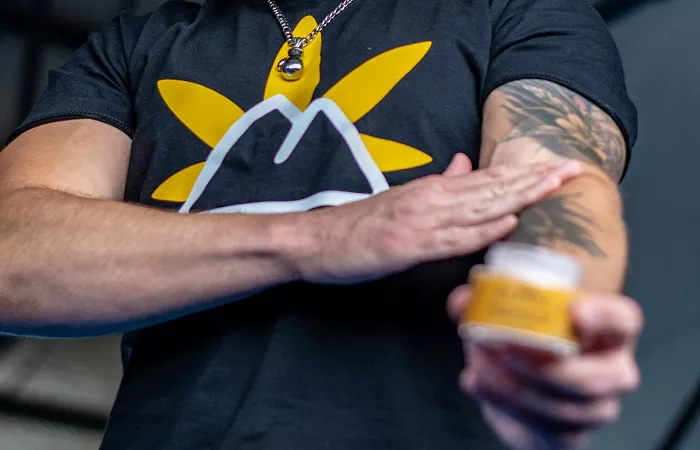A tattoo belonging to a man from Derbyshire has been incorrectly linked to a notorious Venezuelan gang in a U.S. government document, causing confusion and concern. Pete Belton, 44, from Ilkeston, was shocked to discover that his tattoo was featured in a Department of Homeland Security (DHS) document used to identify members of Tren de Aragua (TdA), a transnational criminal organization. Despite having no connections to the gang, his tattoo appeared alongside other images that were allegedly linked to TdA members.
“I’m just an average middle-aged man from Derbyshire,” Belton told BBC Verify. “It was a bit strange, a bit funny at first, but now I’m worried that my family trip to Miami this summer could end up as a six-month all-inclusive holiday to Guantanamo.”
The tattoo, which depicts a clock face with the date and time of his daughter’s birth, was included in a set of nine images used by the DHS to detect and identify possible TdA members. Other tattoos in the document featured symbols such as stars, crowns, and the Michael Jordan “Jumpman” logo. The DHS document, which was included in court filings, stated that “open source material” has shown TdA members with these types of tattoos.
However, reverse image searches revealed that several of these tattoos, including Belton’s, first appeared on tattoo websites with no apparent connection to Venezuela or TdA. One such image led BBC Verify to an Instagram post from a Nottingham-based tattoo artist, who shared a photo of Belton’s tattoo nearly a decade ago. While the DHS document’s image is of lower quality than the Instagram post, the tattoo in both images is clearly the same.
The same tattoo also appeared in a September 2024 report from the Texas Department of Public Safety (DPS) regarding TdA activity. BBC Verify reached out to both the DHS and Texas DPS for clarification on the source of these images but received no response. In an email, however, the DHS defended its intelligence practices, stating it was confident in its assessments, which go beyond just tattoos and social media.
While the exact reason for the inclusion of Belton’s tattoo in the U.S. documents remains unclear, he expressed concern that he could be wrongly identified as a member of the gang. “If I were working in border control and saw someone like me walking through, I’d think, ‘That’s the guy from the document,’” he said.
Belton provided multiple images of his tattoo to prove its authenticity, emphasizing that he has no ties to the Venezuelan gang. Despite this, the U.S. government has not deported anyone solely based on tattoos, according to a recent court filing from an Immigration and Customs Enforcement (ICE) official.
However, U.S. immigration officials have been using a points-based system called the “Alien Enemy Validation Guide” to assess connections to TdA. This system assigns points based on various criteria, including tattoos, with eight points potentially leading to arrest or deportation. A score of four points can be assigned if a person has tattoos that indicate affiliation with TdA. If all eight points come from symbolic markers like tattoos, the document advises further consultation before classifying someone as a gang member.
Venezuelan investigative journalist Ronna Risquez, who has written extensively about TdA, stated that tattoos alone are not sufficient evidence of membership. “TdA does not have tattoos that identify gang members,” she said. “Authorities must conduct a thorough investigation, including checking criminal records, to confirm gang affiliation. A tattoo, clothing, or nationality alone is not proof.”
There have been several cases where individuals were allegedly deported after being wrongly identified based on tattoos. One case involved a man whose crown tattoo, inspired by the Real Madrid football club logo, was misinterpreted as a gang symbol. Another case involved a makeup artist who was sent to El Salvador after a tattoo of a crown with the words “mum” and “dad” was cited as evidence of gang membership.
Back in Derbyshire, Belton and his family are considering whether to cancel their upcoming trip to the U.S. due to the potential risks. “We’ll just wait and see how this unfolds,” he said. “Hopefully, they’ll realize I’m not a Venezuelan gangster, but I’ve seen crazier things happen in the news recently.”
Related topics:

